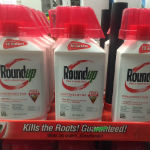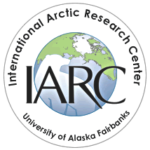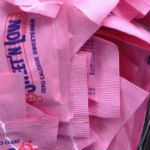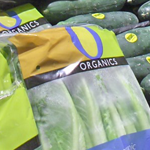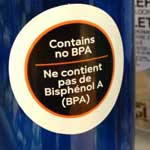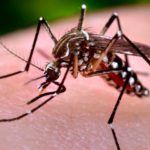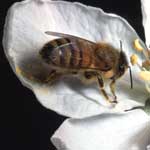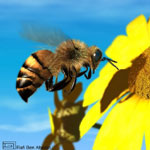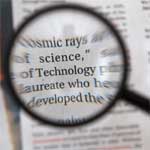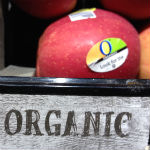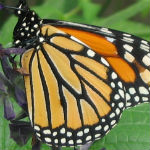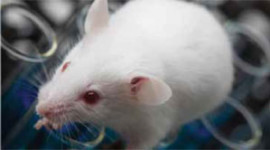"HuffPost’s Chemophobia," By The Center for Accountability in Science Team. It seems Huffington Post needs a fact checker. The outlet recently published an article painting the decision between beauty and safety as one where consumers always loses. The article perpetuates the myth that all chemicals are bad by waging war against sunscreen. The author questions whether her readers know both chemical and physical types of sunscreens exist – as if one should be avoided in favor of the other. She … [Read more...]
Glyphosate Fabrications Unraveling?
"Glyphosate: A Slow But Steady Vindication," By Alex Berezow. There has been a long history of ridiculous fearmongering by environmental activists masquerading as health experts. BPA, MSG, Alar, DDT, and food coloring are just a handful of chemicals that fell prey to overblown fears or outright fabrications. Today, the whipping boy that takes the brunt of the unfounded chemophobic assault on science is the herbicide glyphosate. Glyphosate is demonized primarily for one reason: Monsanto. To many … [Read more...]
IARC’s Questionable “Science”
"Of Questionable Evidentiary Weight' — Another Nail In IARC's Glyphosate Coffin" By Hank Campbell. It seems like a hundred years ago that the International Agency for Research on Cancer (IARC) was considered a neutral force for public good - but it was only 51. In 1965, when the Agency was created by the United Nations, there was a lot of optimism about science and the future and IARC was created to instill confidence in the public about the difference between real harm and scaremongering. Read … [Read more...]
TSCA Reform Casualties
"TSCA Reform Casualties Likely Start with Asbestos," By Angela Logomasini. With the Toxic Substances Control Act (TSCA) reform passed into law, environmental activists are developing lists of chemicals they want banned in short order. Asbestos are near the top of the list, as easy targets. After all, it seems logical to get rid of such obvious carcinogens, but it isn’t that simple. In fact, some bans could actually undermine public health and safety. The U.S. Environmental Protection Agency … [Read more...]
Erin Brockovich’s Toxic Fearmongering
“'Toxic chromium' Fear-Mongering, By Paul Driessen. Erin Brockovich became rich and famous by promoting the notion that people in Hinkley, CA got cancer because of hexavalent chromium (Chromium-6) in drinking water. Pacific Gas & Electric (PG&E) settled a 1993 lawsuit for $333 million, rather than risk trial by a jury frightened by a steady drumbeat of horror stories from lawyers, activists, celebrities, “journalists” and hired “experts.” The lawyers got $134 million in fees, and Ms. … [Read more...]
Safety of the Artificial Sweetener, Aspartame
"Should You Stay Away from Aspartame?" By The Center for Accountability in Science Team. Despite decades of research and hundreds of studies demonstrating the safety of the artificial sweetener, aspartame, rumors persist that it’s dangerous. Some flow from the back-country pages of the web, but there’s at least one government agency (in the world) stoking fears: California’s Office of Environmental Health Hazard Assessment (OEHHA). OEHHA might add aspartame to its Proposition 65 list of … [Read more...]
Majority of Pesticides in California are “Approved Organic”
"More than Half of Pesticides used by California Farmers are Active Ingredients Approved for Organic," By Steve Savage. Did you know that organic farmers use pesticides? They do. Would it surprise you to know that many of the same pesticides are used by both conventional and organic farmers? In fact just over half of all the pesticides used in California by all categories of farmers are active ingredients that are approved for organic. Would it surprise you to know that very little of modern … [Read more...]
Biggest Cancer Risk Factor: Age
"Disease? Only If There Was Processed Food 2 Million Years Ago," By Hank Campbell. While cancer mortality has plummeted in recent years, survival rates have doubled in the last 40. Yet actual cancer rates have not really fallen overall, and there has long been a subset of people who claim that is because of our "modern" lifestyle; things like food and trace chemicals in the environment. Their solution is to be as ancient as possible; eat what they call a "paleo" diet and try to avoid chemicals … [Read more...]
Reality Check Regarding Microbeads
"Team Jen! Leave Jennifer Aniston (and her face wash!) Alone," By Julie Gunlock. Yesterday, the Daily Mail reported that the scientific journal Nature is criticizing actress Jennifer Aniston for promoting Aveeno face wash, which contains microbeads (microbeads are tiny plastic beads that act as exfoliators). This story is sure to resurrect the war on microbeads (the Nature editorial was actually written last year, but the Daily Mail is only reporting on it now). For years, activists have been … [Read more...]
BPA Is Everywhere or Not
"BPA Is Everywhere, Except Where It’s Not," By Steve Hentges. With the high level of attention to bisphenol A (BPA) over the years, it’s easy to get the impression that BPA is everywhere and we’re constantly being exposed to high and harmful levels in our daily lives. You might even have seen BPA referred to as an “everywhere chemical.” Adding to the confusion, the media is notorious for attaching pictures of products that contain absolutely no BPA to articles about BPA. Perhaps the most common … [Read more...]
Zika Prevention Kit
"The Best Possible Zika Prevention Kit Includes DEET," By Angela Logomasini, Ph.D. Last week, Broward Country Florida recorded the first two Zika cases transmitted by mosquitos in the United States. The Centers for Disease Control and Prevention (CDC) is urging pregnant women to assemble and deploy a “Zika Prevention Kit,” which is a good idea. CDC’s suggested kit includes: bed nets; insect repellent; mosquito dunks, which are added to standing water to prevent development of mosquito larvae; … [Read more...]
No Need to Worry about the Bees
"The Buzz: Six Reasons Not To Worry About The Bees," by Henry I. Miller. Bees are in the news, but for all the wrong reasons—mainly, dire tales of disappearing bees threatening a third of our food supply. Time Magazine, opting for sensationalism over accuracy, said we were headed toward “A world without bees,” with an online video explaining, “Why bees are going extinct.” They called it the “beepocalypse” and blamed it all on modern agricultural technologies, urging immediate and aggressive … [Read more...]
Beekeeping Fad
"Beekeeping Fad And The Stress Of Traveling Is Harmful To Bees," By Hank Campbell. Are bees in peril or not? It's difficult to know, because the moment science declares one thing not an issue (example: neonicotinoid targeted pesticides), environmental groups move the goalposts and declare something else is the problem. When honey bees were shown to be unaffected, groups proposed that wild bees were the big concern, and if amateur record-keeping and a Bayesian estimate agrees, they declare the … [Read more...]
A Perspective on Agent Orange and Dioxin
"I’ve Had More Exposure To Agent Orange Than Anyone: Here’s What I Know," By Michael Newton. You’ve probably never heard of me, even though I have studied herbicides used in forests for over 50 years, all of it published in weed science literature. However, you have heard of one famous substance I studied; Agent Orange. Agent Orange is now known to have contained a contaminant “dioxin,” the generic name of over 70 organochlorine compounds that vary in toxicity. Agent Orange was a mixture of the … [Read more...]
Organic Farming Not Better for the Environment
"Organic Farms Yield 20% Fewer Crops than Conventional Farms," By Alex Berezow. People buy organic food for many different reasons, most of which are factually incorrect. Quite possibly the biggest myth about organic food is that it is grown without pesticides. That is simply untrue. Others have been led to believe that organic food is healthier and tastier* than conventionally grown food. Those myths have also been busted. Another justification for organic food is that it is more sustainable … [Read more...]
Roundup Safety
Roundup Shown to Be Safe (Again), By Center for Accountability in Science. It’s hard to ignore the growing list of scientific authorities from around the world that keep coming to the same conclusion: glyphosate, the ingredient in herbicides such as Roundup, is safe. Recently, that list just got a little longer. That’s because New Zealand’s Environmental Protection Authority released its Review of the Evidence Relating to Glyphosate and Carcinogenicity. The new review considered studies … [Read more...]
Action to Help Monarch Butterflies
"Don’t Give up on the Monarch Butterfly!" By Angela Logomasini, Ph.D. Last winter, monarch butterfly numbers soared, increasing by more than one-third in their overwintering habitat. Yet we are well into July, and while my milkweed garden has been abuzz with bees feasting on the nectar, there’s no sign of any monarchs or their caterpillars. I am probably not alone in my dismay, but hopefully butterfly enthusiasts won’t give up—at least I won’t. According to MonarchWatch.org, storms this past … [Read more...]
It’s Time to End Taxpayer-Funded Junk Science
"Checks And Balances Are Critical To Public Health," By Jeff Stier. Congressional oversight of executive branch agencies is a key element of the checks and balances that prevent accumulation of too much power, as well as abuse of that power, in any one part of government. A review of two recent congressional oversight endeavors now being stymied by the Obama Administration underscores the often-overlooked importance of the oversight process. In both cases, lives are at stake. The first instance … [Read more...]
“TENDR” Initiative Promotes Chemophobia
"Hyperbole: the Road to Reform," By The Center for Accountability in Science Team. No parent wants to expose his or her child to potential neurotoxins. That’s why a group of scientists, health officials, and environmental activists launched Project TENDR: Targeting Environmental Neuro-Developmental Risks and issued a call to action to “reduce widespread exposures to chemicals that interfere with fetal and children’s brain development.” Unfortunately, Project TENDR has taken this laudable goal a … [Read more...]
Safer than Soy: BPA’s Low Risk Belies Common Beliefs
"Mind The (Risk Perception) Gap On BPA," By Steve Hentges. It is commonly perceived that natural chemicals are safe while manmade substances may be harmful. These perceptions, however, if not supported by scientific evidence, can result in risk perception gaps that can cause us to worry more than warranted by the evidence. A current example of a risk perception gap is the common belief that naturally occurring chemicals known as isoflavones, which are present at significant levels in some … [Read more...]
Would You Choose a Plastic-Free Lifestyle?
"An Austrian Family Avoids All Plastics. Guess What Happens," By Josh Bloom. No- this not a spinoff of Survivor in which the goal is to stay alive without the benefit of a new phone, plastic tooth- and toilet brushes, Tupperware, and laundry baskets. It could be, except reality TV isn’t exactly reality, but the attempts of an Austrian family of five to spend six years trying to avoid contact with any plastic are very real. I’ll leave it to you to decide whether adopting such a lifestyle is … [Read more...]
How We Perceive Risk
"It's Important To Know How Your Emotions Influence Risk Perception," By Henry I. Miller. Science applied to risks–of products, processes or activities–can be baffling to non-experts. Because people want certainty in their lives, the provisional nature of the scientific method–what we “know” only applies until disproven by new data–can be worrying. The public want simple black-or-white answers, rather than nuanced, qualified advice about relative risk, and they may become frustrated when they … [Read more...]
Misleading Prop 65 Labeling Regulations
"Overregulation Doesn’t Even Spare HIV Patients," By Gregory T. Angelo. This month, the list of substances subject to California’s Proposition 65 was expanded to include Bisphenol-A (BPA), a trace ingredient in many plastics that the scientific community has deemed safe in small amounts.As with other products that include substances deemed cancer-causing under Prop. 65, products that include BPA will now have to carry a warning label stating that they are “known to the state of California to … [Read more...]
TSCA Reform’s Unintended Consequences to Come
"Policy Expert: TSCA Reform Will do Little to Protect Public Health," By Meagan Parrish. Much has been said about TSCA reform, and most of it has been positive. In fact, the process of creating and passing the Frank R. Lautenberg Chemical Safety for the 21st Century Act, which was recently signed into law by President Obama, brought together chemical industry representatives and environmentalists alike. But not everyone is convinced chemical law reform will protect public health. According to … [Read more...]
Too Much Media Alarmism on BPA
"Too Much BPA?, ByThe Center for Accountability in Science Team. A study published in Environmental Research last week fanned the flames of anti-chemical activists when it drew a link between canned food consumption and the presence of increased levels of Bisphenol-A (BPA) in the urine. The study itself isn’t what we take issue with. In fact, it brought together some of the brightest minds at Stanford, Johns Hopkins, and Columbia Universities. Their research was thorough, encompassing over … [Read more...]

